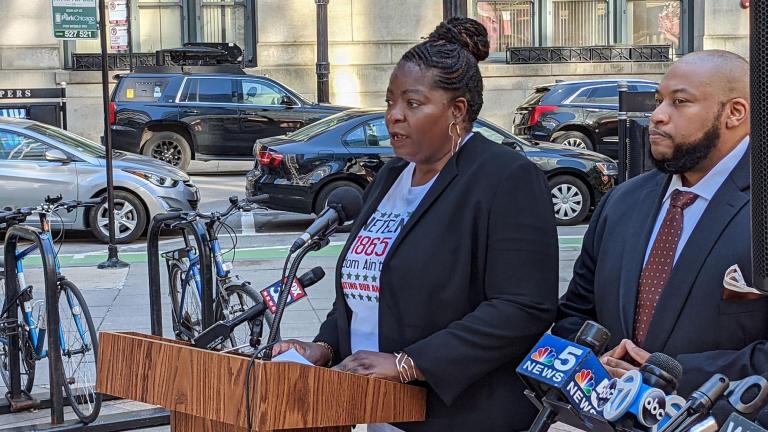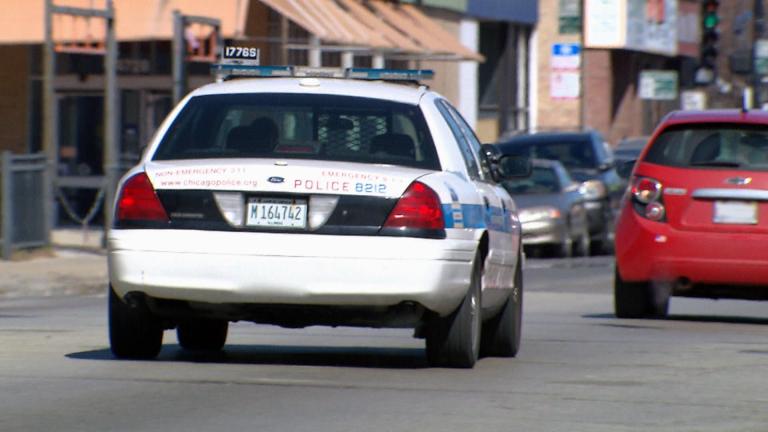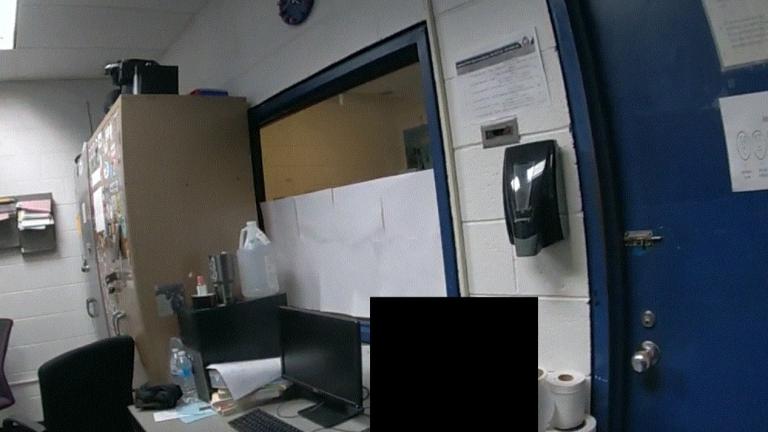Chicago Police Department officials on Tuesday defended their continuing use of “deeply flawed” records that list approximately 135,000 Chicagoans as members of gangs nearly 2 1/2 years after the city’s watchdog found the databases were riddled with errors, ripe for abuse and disproportionately targeted Black and Latino Chicagoans.
During a hearing before the City Council’s Public Safety Committee, Deputy Chief Thomas Mills told alderpeople that police officers need a database that lists individuals’ gang affiliations to prevent “retaliatory violence” and give officers a chance to “get ahead of the next crime.”
However, an April 2019 audit by the office of Inspector General Joseph Ferguson determined the city’s gang databases were a “deeply flawed collection of gang data, with poor quality controls and inadequate protections for procedural rights.”
A follow-up audit released in March found that the Chicago Police Department “continues to collect and rely upon data that it has acknowledged is seriously flawed.”
Deborah Witzburg, the deputy inspector general for public safety, told alderpeople that limits the effectiveness of the data to fight crime.
“The poor quality and the unreliability of the data in use here necessarily circumscribes the benefit of its use,” Witzburg said.
Approximately 95% of the at least 134,242 Chicagoans listed as gang members by the CPD are Black or Latino, Ferguson’s April 2019 audit found. Individuals were entered into at least one of 18 databases when they admitted to gang affiliation, wore or used gang emblems, tattoos, hand signals or other symbols, or were identified by an officer “with special intelligence” on gangs.
Mills acknowledged that the policy that will determine who can be added to the new database, dubbed the Criminal Enterprise Database, is still “in flux” and could not answer a question posed by Ald. Jason Ervin (28th Ward) about whether only those arrested will be added to the database and listed as a gang member.
“We are still perfecting the ultimate product,” said Mills, who told Ald. Byron Sigcho-Lopez (25th Ward) that he did not know how much the new database would cost the city.
The database will contain three years’ worth of data, Mills said. Police officers would only be allowed to add someone to the database if they voluntarily admit they belong to a gang, and that statement is recorded by a police officer, Mills said.
People can also be added to the database if two or more additional criteria are reached, including wearing clothing with gang emblems, having a tattoo of a gang insignia or being referred to as a gang member in the court record of a criminal charge, according to a previous version of the department’s gang database policy that was removed from the Chicago police website.
Once someone is added to the database, police officials must notify them and they can appeal the designation. Police officials have 90 days to act on that request, and if they reject it, they have to provide the person with the evidence used against them. That denial can be appealed to the Chicago Police Board for a final decision, according to the previous version of the policy.
People in the database will be removed automatically after five years if they have not been convicted of a gang-related crime, Mills said.
In addition, only the police department will be allowed to use the database. All data will be off-limits to Immigration and Customs Enforcement, schools, licensing agencies and housing agencies, Mills said.
Any outside agencies granted access to the database will have to sign an agreement promising not to share the information with prohibited agencies, Mills said.
Mills said that new database, which will allow police officers to track gang members while protecting the constitutional rights of all Chicagoans, will be in use by September.
However, Ald. Maria Hadden (49th Ward) said she had “huge problems” allowing the police department to continue using flawed data.
“All of this is unacceptable,” Hadden said. “As your City Council, we should not allow you to continue. This database has an outsize negative impact on people’s lives. It has ruined people’s lives.”
The City Council’s Public Safety Committee declined to hold a hearing on Ferguson’s initial audit despite calls from both Ferguson and 20 aldermen.
Mayor Lori Lightfoot’s 2019 campaign platform promised to replace the existing databases “and impose strict guidelines for operating and maintaining any replacement database so it only includes intelligence collected from real, credible police investigations and is regularly audited to make sure that the information remains relevant and credible.”
Lightfoot has not fulfilled that promise, although she moved in July 2019 to permanently block ICE agents from accessing the database amid a rash of threats from President Donald Trump to conduct raids in Chicago and other cities nationwide in an effort to deport undocumented immigrants.
In addition, Lightfoot has resisted calls for the city to abolish the databases entirely, saying there are “legitimate” reasons for the police department to maintain a list of gang members, Lightfoot said.
“It’s hard for me to comprehend the amount of harm that this database has caused to Black and brown communities, and I’m deeply ashamed that it has taken us so long to start having a public conversation about this,” said Ald. Rossana Rodriguez Sanchez (33rd Ward).
A similar, but more limited gang database used by Cook County law enforcement officials was scrapped in 2019, and the Board of Commissioners also passed an ordinance to ensure its destruction and prohibit further data-sharing and participation in external databases.
Police officials agreed this fall to change the way the departments tracks Chicagoans suspected of being affiliated with a gang as part of the resolution of a class-action lawsuit in September.
As part of the lawsuit’s resolution, the police department agreed to publish data about those added to the new database and tagged as gang members, including their age, race and reason for inclusion, according to court records.
The department also agreed to publish information about how many people are added to the gang database, how many people appeal that designation and how many of those appeals are granted and denied.
In addition, police officers will no longer fill out “gang arrest” cards and submit that information as justification for adding someone to the database, according to the agreement resolving the lawsuit. Those cards contained unreliable information and were disproportionately used to tag Black and Latino Chicagoans as gang members, according to Ferguson’s original audit.
That data will be “walled off,” and no members of the police department will be able to access it. If that data is accessed through the department’s Citizens and Law Enforcement Analysis and Reporting, or CLEAR, database, it will be tagged with a disclaimer that any gang membership information had not been verified, Mills said.
Ald. Jeanette Taylor (20th Ward) said the database should be abolished.
“This is a wheel we don’t need to reinvent,” Taylor said. “This is a wheel we need to destroy.”
Contact Heather Cherone: @HeatherCherone | (773) 569-1863 | [email protected]








